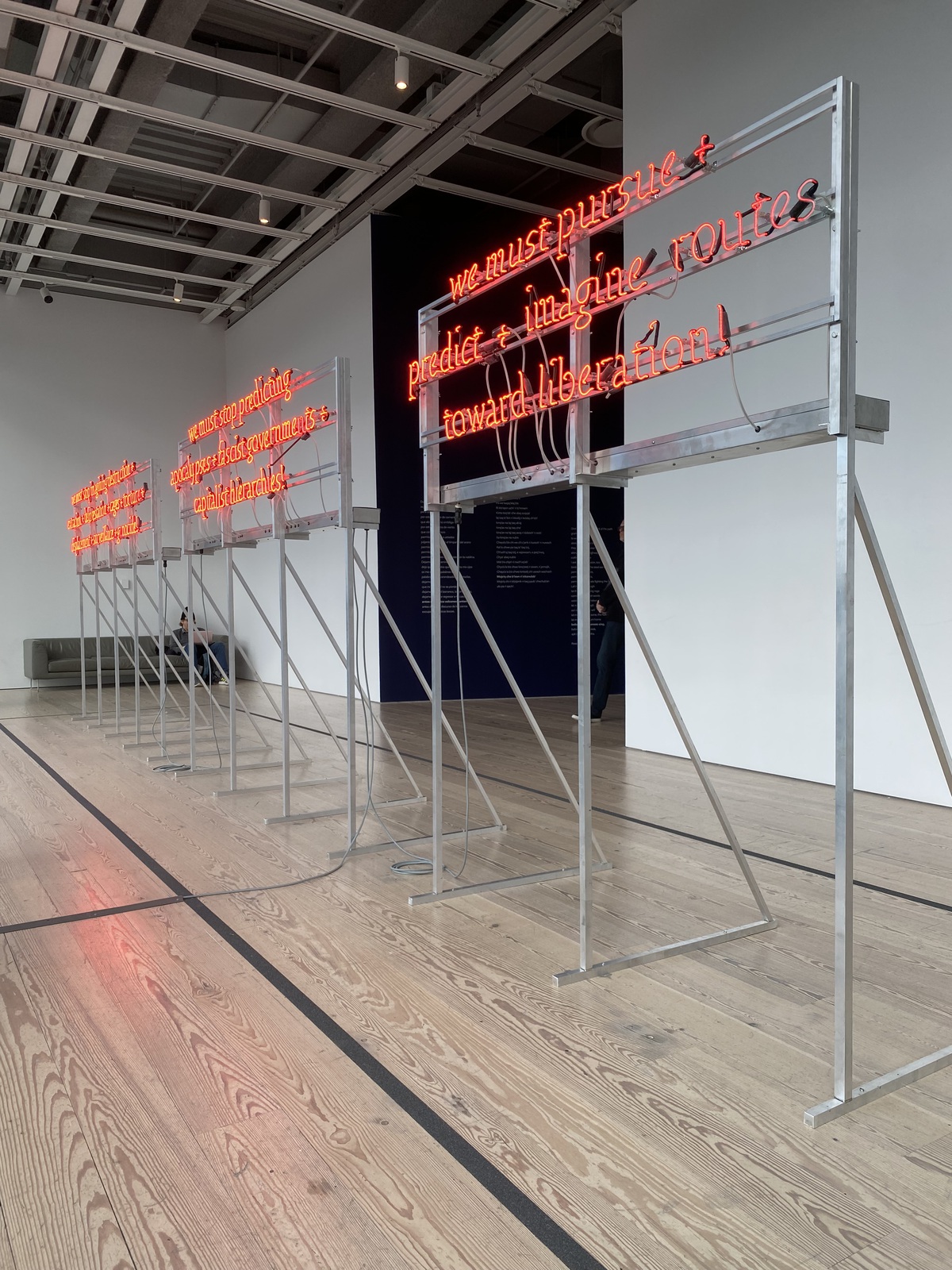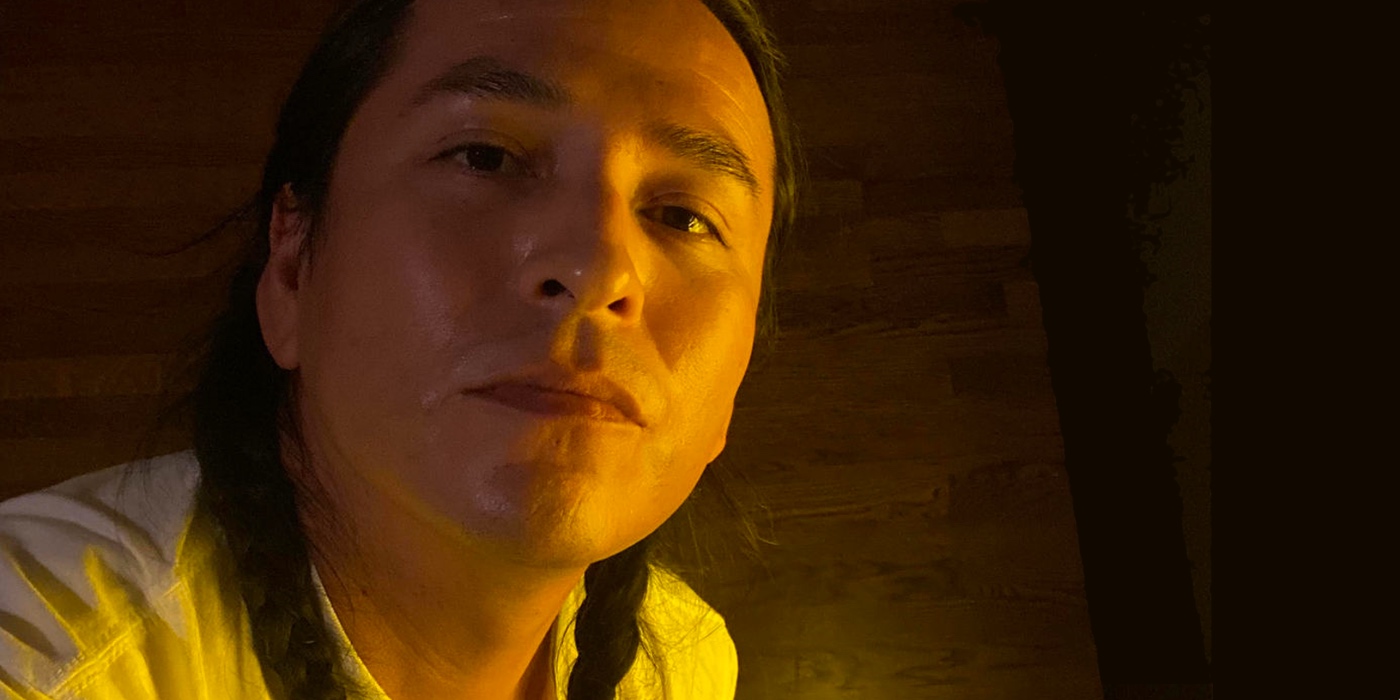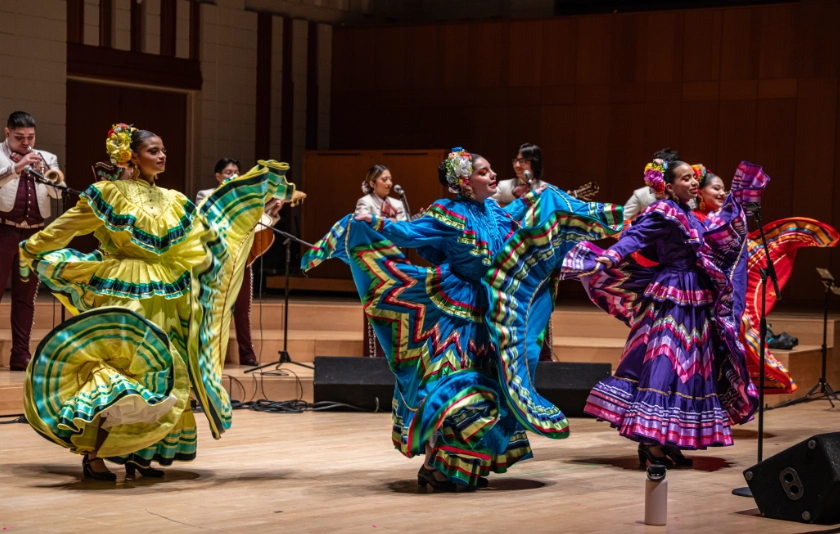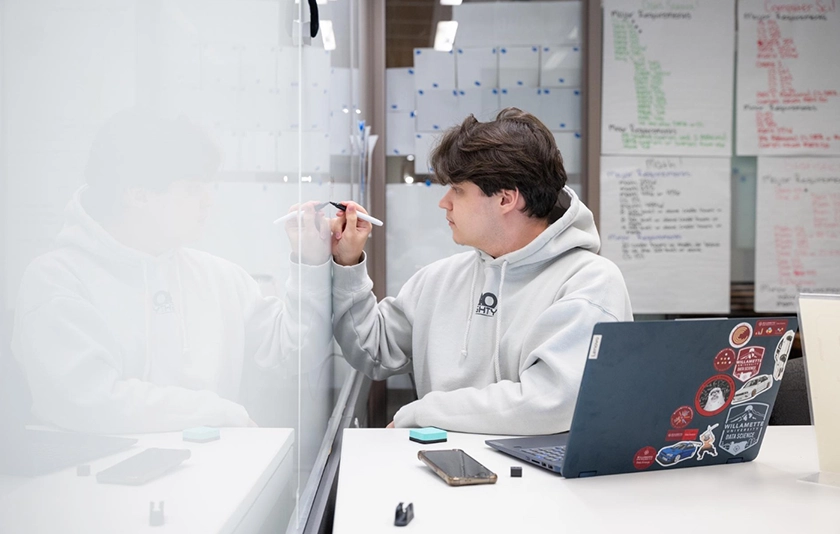Demian DinéYazhi´ BFA’14 (they/them) focuses their art and life on political involvement and change, so it’s fitting that the artist was invited to show a piece at the prestigious 81st Whitney Biennial: "Even Better Than the Real Thing" — at the same time that another piece of their art was banned.
DinéYazhi´, born to the clans Naasht’ézhí Tábaahá (Zuni Clan Water’s Edge) and Tódích’íí’nii (Bitter Water), was thrilled to be invited to participate in the show along with 70 other artists. Considered one of the most prominent showcases of contemporary American art, the Whitney Biennial is tied to the legacies of such historic American artists as Georgia O’Keefe and Jackson Pollock.
“It was exciting for the Whitney to be aware of my situation and the political content of my work — supporting it, accepting it, and inviting me to contribute to the biennial,” DinéYazhi´says. “At that time, I was dealing with my work being censored and taken down.” DinéYazhi´ says that the piece in question was taken down without receiving communication from the center where it was displayed.

The newly commissioned piece, "we must stop imaging apocalypse/genocide + we must imagine liberation, 2024," is a large set of three red neon signs installed on the Whitney’s fifth floor, overlooking the Hudson River, and it’s already been highlighted by the New York Times. The text stems from DinéYazhi´’s third book of poetry, We Left Them Nothing.
The artist says the work reflects a multitude of issues that affect us. “It’s an Indigenous and Queer, Non-Binary Trans response to a lot of the ongoing failures of settler colonialism, heteropatriarchy, capitalist sabotage — the oppressive and manipulative strategies that are utilized by the settler colonial empire to create illusions of power and political supremacy.”
DinéYazhi´ feels deeply affected by the pandemic and the recent awareness of genocide and destruction actively being documented around the world. “Right now we are much more aware and conscious of what it means to speak up about our lives, how messy they are, what it means to walk down the street and question our survival and safety,” DinéYazhi´ says. “I want to continue with the spirit of speaking up and pursuing revolution as a key component to nurturing community care and love for the earth and survival.”
DinéYazhi´ chose to attend PNCA to focus full-time on their art. “I felt really lucky to have had certain conversations and support while at PNCA,” DinéYazhi´ says. The artist advises current students to, “collaborate with fellow students and support one another because you never know what path people will pursue in the future, and what types of support you can provide for one another.”
In 2014, DinéYazhi´ was awarded PNCA’s Thesis Writing Award and the Intermedia Arts Department award for their curatorial project, "Bury My Art At Wounded Knee: Blood and Guts in the Art School Industrial Complex." The project led them to found R.I.S.E.: Radical Indigenous Survivance & Empowerment, an activist initiative dedicated to the education and amplification of Indigenous art and culture.
The Whitney Biennial 2024 runs from March 20 to August 11. Learn more about the show and DinéYazhi´.



